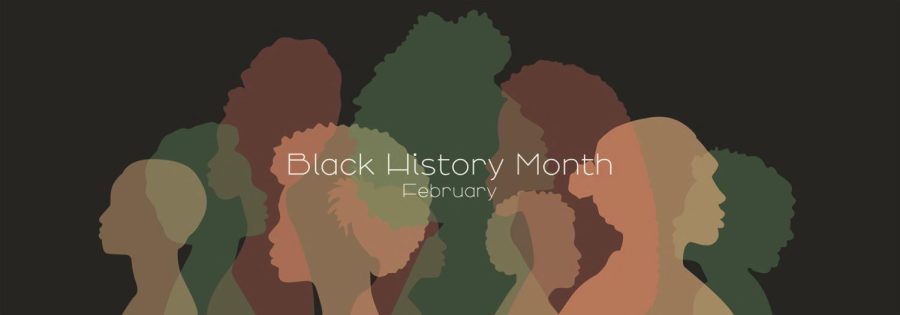Campus celebrates Black History Month in February
The campus will celebrate Black History Month in February with multiple events.
February 1, 2022
AACC is hosting a variety of in-person and virtual events for students, staff and faculty in celebration of Black History Month in February.
To start the month off, the Black History Month Planning Committee put together an art exhibition that will be on display in the Pascal Center for Performing Arts Gallery. The month-long display will end with a virtual reception on Feb. 24 for everyone to meet the five featured artists and participate in a discussion about their work.
“I am so excited,” said communications professor April Copes, who curated the display. “There are so many chapters to our story, and we wanted the exhibit to reflect that.”
During the first week of February, student members of the Super Science Club will show the movie “Hidden Figures” and host a discussion about it. The movie tells the story of a group of black women who worked as mathematicians for NASA during the early years of the space program.
The following week, author Joshua K. Wright will discuss his book, “Wake Up Mr. West: Kanye West and the Double Consciousness of the Black Celebrity.”
Also that week, the annual Race Card Project, which invites students to write their definitions of race and post them on designated boards around campus, will begin and be on display until the end of the month.
Truxal Library also will have a visual Black History Month display on the second floor from Feb. 10 through the end of the month.
Then on Feb. 22, the Entrepreneurs Club will host a panel discussion with educators from three predominantly black Maryland universities: Bowie State, Coppin State and Morgan State. Panelists will discuss entrepreneurship and opportunities at Maryland’s historically black colleges and universities.
On the same day, Katie McElhaney, AACC’s sexual violence prevention coordinator, will host a discussion called, “Prevention in Black History: Learning from Our Leaders,” focusing on the interaction of racism and sexism and collective action against sexual violence as it pertains to the black woman.
Later that week, the Black Male Summit will feature multiple workshops that focus on the holistic development of black males at AACC.
To close the month out, the planning committee, the Office of Student Engagement and the Student Achievement and Success Program will host “Telling Our Stories: An Evening with the Arts,” featuring student and guest performances.
Black History Month coordinator Stephanie Baker-Smith, an assistant professor of health sciences, said the celebration of black history should last longer than one month.
“Black history is part of our lives and there is only so much we can cram into 28 days to let the world know the vast and diverse contribution of African Americans,” Baker-Smith said.
Copes agreed.
“I think one of the biggest reasons that Black History Month events are important for the whole AACC family—students, staff and faculty—is because so many of us have not had access to the rich wealth of black culture and black history,” Copes said.
Copes added that Black History Month events are a way for people to have access to a type of learning that “just has not been as readily available as it should have been historically. … Many of us did not attend schools or grow up in families where black culture was taught and available to learn and be celebrated. Most of our exposure came from museums and cultural events.”













Stephanie Goldenberg • Feb 4, 2022 at 8:26 AM
Thank you so much for covering AACC’s Black History Month events.
I hope our entire AACC community attends at least one event.
Visit http://www.aacc.edu/black-history for events and registration links.
Follow events on Facebook: https://www.facebook.com/AACC-Social-Justice-748977288481384 and on Instagram: @aaccsocialjustice.